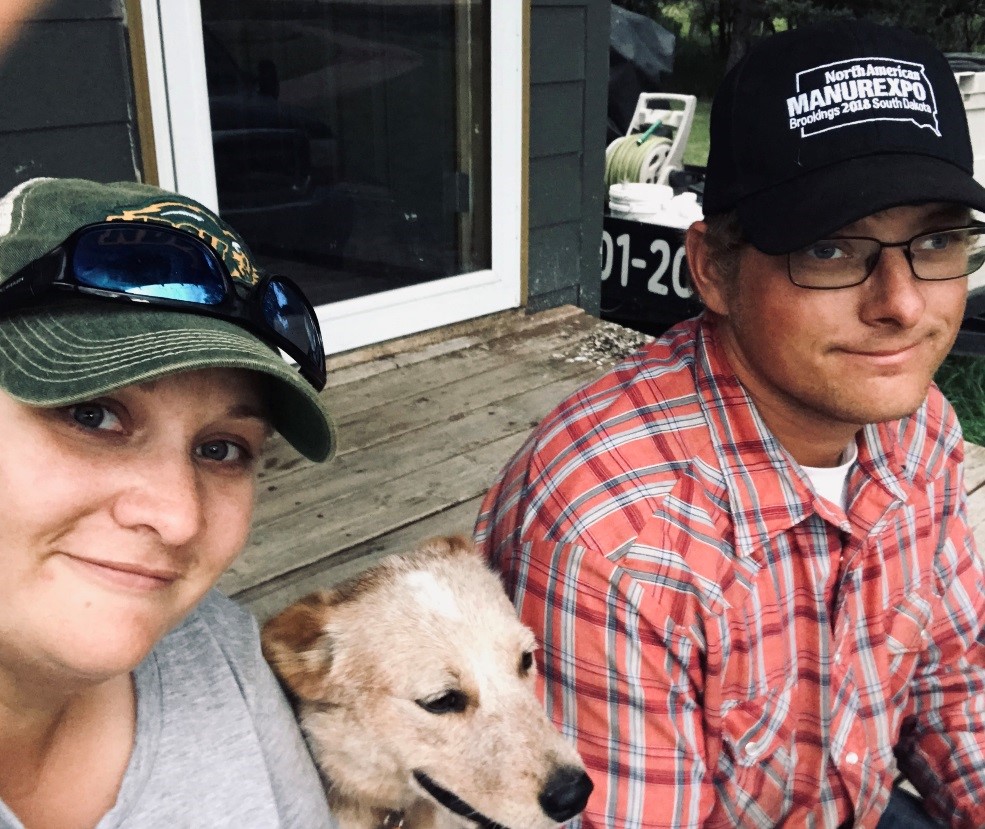Hard Conversations
A few weeks ago, my husband (Nick) and I invited some friends and family to spend the weekend with us at our farm celebrating our first anniversary. Fall suppers are my favorite with fresh potatoes, grilled meat, corn on the cob, cucumbers and tomatoes and our moms outdid themselves with a variety of desserts. We gathered in our quonset and after we were thoroughly stuffed, we played Cornhole, a few rounds of cards and ended the night just talking; swapping stories, sharing trials and offering advice. As Nick and I walked to the house late that night, we agreed how nice it was to know that our close friends and family members, who seem to have it all together, have the same life questions as us. “How long do we let our off-farm income support our farm?,” “Direct market our livestock or go to the sale barn?,” “Build a house now or wait a couple more years to see if we’ll be profitable here?,” “Pay for daycare and keep the job with insurance or keep the kids at home?,” “We’re buying used when everyone else is buying new, what’s the smarter investment?”…we don’t waste time with the weather when we get face-to-face time with our people. Granted, the weather has certainly been something to talk about this year.
It’s not nice to know that other folks are struggling, but it is nice to know that we’re not the only ones struggling. The point is, we spent nearly the whole summer having hard conversations between just the two of us and then find out after one night of visiting that we’ve all been asking the same questions and are having the same hard conversations.
That night didn’t fix anything, financially. We still don’t know if we should build our sheep flock or a house, buy a new pickup or a used tractor, or cash everything in and start over. But based on the conversations we’ve had with others since that night, we’re not the only ones wondering what to do right now with the current agriculture climate. Whether you have 10,000 acres or 10 acres, you run a research farm or you own a century farm, you grow wheat or you grow carrots, you raise cows or you raise hay, we’re all feeling the ramifications of the current situation we’re facing. Our situation is not more or less important than yours and yours is not more or less important than your neighbors. Just talking about what’s going on, even if it fixes nothing financially, can boost morale and diminish the severity of the issue. It takes the negative power away so we can logically reason.
So how do we start conversations with each other? A simple “How’s it going?” followed by active listening is a great step. If someone has stopped coming to coffee or cocktails, give them a call. If your usually-cheery social media friend stops posting, send them a text. If you haven’t seen your normally active neighbor, stop by and check in on them. Sometimes all it takes to change perspective is having someone listen to our hard conversations.
Following are some resources:
- Your local NDSU Extension agents are great listeners and have resources available to help: https://www.ag.ndsu.edu/extension/directory/counties
- Your local parishioners and clergy are also skilled listeners.
- There is a plethora of information on the NDSU Farm and Ranch Stress website: https://www.ag.ndsu.edu/farmranchstress including resources like these:
- 4 Steps to Managing Stress in Farming and Ranching (a set of reflective steps to assess needs and impacts, identify and access resources, pursue quality decisions, and connect with sources of support): https://www.ag.ndsu.edu/publications/kids-family/4-steps-to-managing-stress-in-farming-and-ranching
- Key Coping Tools in Times of Farm and Ranch Stress (a set of useful tools for your wellness toolbox in times of farm stress): https://www.ag.ndsu.edu/publications/kids-family/key-coping-tools-in-times-of-farm-ranch-stress
- Suicide Prevention Hotline 1-800-273-8255 (1-800-273-TALK). If you or someone you know is having thoughts of suicide, talk to someone. With help comes hope. Call any time. Answered locally by FirstLink.
- 2-1-1 FirstLink. Provides information online or by phone about helpful community and volunteer health and human services resources.
- FirstLink database of nonprofit agencies, health and human services agencies, and government resources: (http://myfirstlink.org/community-resources)
- Call the 2-1-1 Helpline for confidential listening and support, information, and referral.
- Substance Use Disorder Voucher Program. Receive financial help to access substance use disorder treatment and recovery services from participating providers if you qualify.
- Information is online at www.behavioralhealth.nd.gov/addiction/substance-use-disorder-voucher
- List of Participating Providers is online at www.nd.gov/dhs/info/pubs/docs/mhsa/sud-voucher-providers.pdf.
- Questions? Contact the Behavioral Health Division at 701-328-8920 or sudvoucher@nd.gov.
- Economic Assistance Programs. Can help qualifying individuals and families with food, home heating, childcare costs and health care coverage.
- Apply online at www.nd.gov/dhs or visit a county social service office. County office location and contact information is online at http://www.nd.gov/dhs/locations/countysocialserv
- Visit http://www.ndresponse.gov to learn about help available from other agencies and programs.
This current situation is a season. It’s part of the cycle. We can look back at how our parents, grandparents and mentors have struggled in the past and be thankful they chose to persevere. We can choose to put one foot in front of the other and keep moving forward. Please take care of yourself and look out for others. Please also know that you’re on our minds and we’re happy to listen too.
 A lot of hard conversations occur on the steps at our farm. And Ruby Roo is almost always in on them!
A lot of hard conversations occur on the steps at our farm. And Ruby Roo is almost always in on them!
Mary Keena and the Carrington Research Extension Center Staff
NDSU.Carrington.REC1@ndsu.edu
701-652-2951


